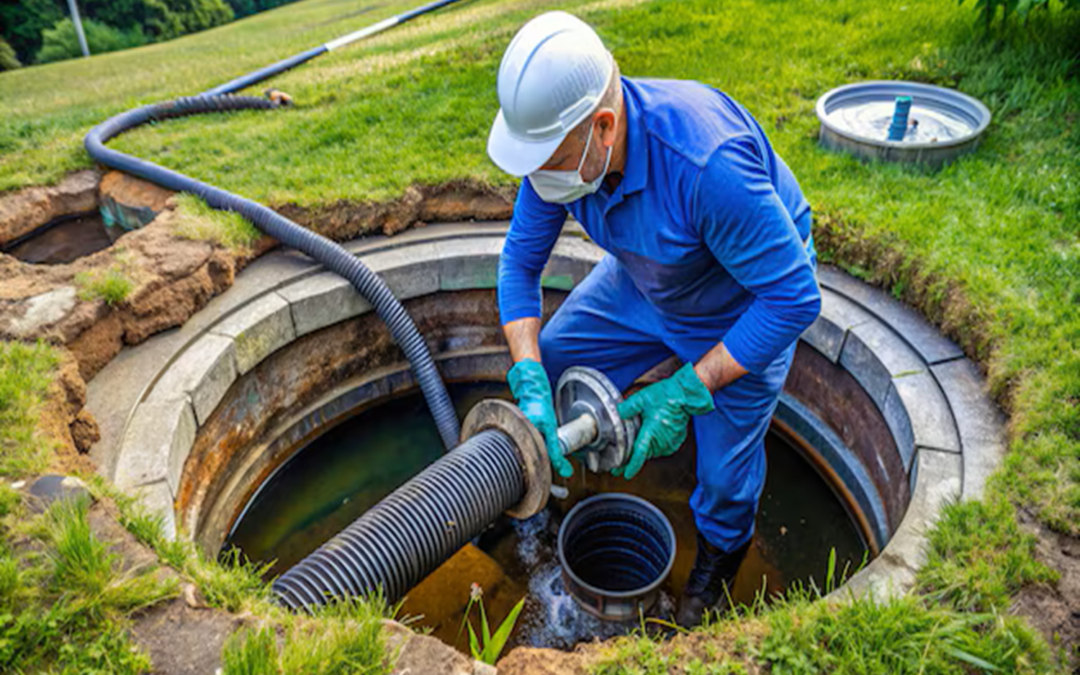Understanding how essential a functioning septic system is to our homes helps us appreciate the need for proper maintenance. As experts in plumbing and heating, we’ve seen firsthand the impact a well-kept septic system can have on the efficiency and health of your home’s waste management. This guide will delve into what exactly a septic system is, how it operates, and the simple but critical maintenance steps you can take to ensure it functions smoothly.
Often, homeowners may not consider their septic system part of daily life until something goes wrong. A well-maintained septic system is key to avoiding unpleasant surprises, like sewage backups or system failures. By keeping informed about the basic workings and common issues of septic systems, you can take proactive measures to prevent significant problems, and understand when it’s time to call in the professionals for help. This approach not only saves you from potential discomfort but can also significantly reduce repair costs in the long run. Let’s explore how your septic system works and how to keep it running effectively.
What Is a Septic System and How Does It Work?
A septic system is an underground wastewater treatment structure commonly used in areas lacking centralized sewer systems. These systems are eco-friendly and efficient, primarily used in rural homes. They operate by collecting the waste water that flows out of your home—from your kitchen, bathroom, and laundry—into a single pipe leading to a septic tank buried underground.
Inside the septic tank, the waste separates into three layers. The solids settle at the bottom forming sludge, oils and grease float to the top as scum, and the middle layer consists of partially clear wastewater. This middle layer of water then flows out of the tank into a drainage field through a set of pipes. Here, the soil absorbs and naturally filters the wastewater, removing harmful bacteria and nutrients. It’s a simple cycle, but it requires the system to be in good working condition to prevent health hazards and pollution.
Routine Maintenance Tips for Your Septic System
To keep your septic system running smoothly and extend its lifespan, we recommend the following maintenance guidelines:
1. Regular Inspection: It’s crucial to inspect and pump your septic tank every 3 to 5 years by a professional. They’ll check for leaks, examine the layers of scum and sludge, and ensure that the pipes and mechanisms are in good working order.
2. Be Mindful of What Goes Down Your Drains: Avoid flushing non-biodegradable products, such as paper towels, feminine hygiene products, or even “flushable” wipes, as they can clog the system. Similarly, reduce the amount of chemicals, like household cleaners, which can kill beneficial bacteria that break down solids in the tank.
3. Manage Water Usage: Excessive water can overload the septic system, preventing solids from settling properly and potentially leading to blocked pipes. Simple methods such as fixing leaky faucets, using high-efficiency fixtures, and spreading out laundry days can significantly reduce water load.
4. Keep the Drain Field Clear: Ensure that you never park cars or plant trees near your drain field as this can obstruct the soil’s absorption capacity. The area over your drain field should be clear of anything heavier than a lawnmower.
These simple recommendations can significantly mitigate the risk of costly breakdowns and repairs. Regular attention and preventive measures ensure that your septic system functions effectively, providing reliable and safe disposal of your household waste.
Common Problems with Septic Systems and How to Spot Them
Septic systems, while durable and efficient, can sometimes run into problems that can affect their operation. Recognizing the early signs of potential issues can prevent major repairs and keep your system functioning properly. One common issue is slow drainage. If your sinks or toilets drain more slowly than usual, this could be a sign of a blockage or an overfilled septic tank. Additionally, unpleasant odours around your tank or drain field are telltale signs of a leak or overflow.
Another indicator is overly soggy soil around the drain field, even in dry weather. This can signal that the wastewater is not properly filtering through the soil due to over-saturation or clogging of the pipes that distribute the effluent. Finally, sewage backups are the most obvious and distressing sign that there is something seriously wrong with your septic system. If you notice any of these issues, it’s important to address them promptly to avoid more severe complications.
When to Call a Professional for Septic System Services
While routine maintenance can be handled independently to a certain extent, there are times when it’s crucial to call professional septic services. If you encounter a sewage backup in your home, it’s vital to call experts immediately as this poses serious health risks and requires professional tools and expertise to fix. Similarly, if you detect persistent bad odours, soggy soil in the drain field, or if your system makes unusual noises, these are indications that your septic system may have significant issues needing expert attention.
Professionals like us have the specialized knowledge and equipment to diagnose and resolve complex problems safely and efficiently. Remember, trying to fix these issues on your own without the proper knowledge can exacerbate the problem and lead to costly damages. When in doubt, it’s always best to consult with a professional to ensure the long-term health of your septic system.
Conclusion
Maintaining a septic system is not only about preventing problems but also ensuring the safety, efficiency, and longevity of your home’s waste management system. Being aware of how your system functions, conducting routine maintenance, and knowing when to call in the professionals are all crucial aspects of responsible septic system ownership.
We hope this guide has helped you understand the importance of and the basics behind
maintaining your septic system effectively. Remember, regular check-ups and addressing small issues early on can save you significant time and expense in the future. If you’re ever in doubt about the state of your septic system, or if you need professional services to keep your system in top shape, don’t hesitate to reach out to us. Trust Pipes Plumbing, Ottawa’s plumbing and heating experts, to provide reliable service and expert care for all your septic system needs.

